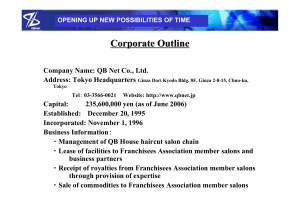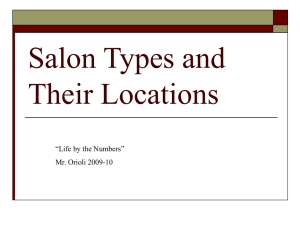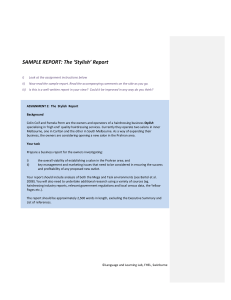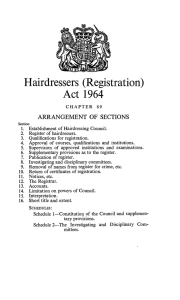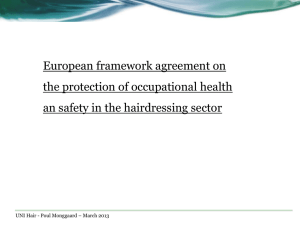Dublin_Presentation_UK_employers
advertisement
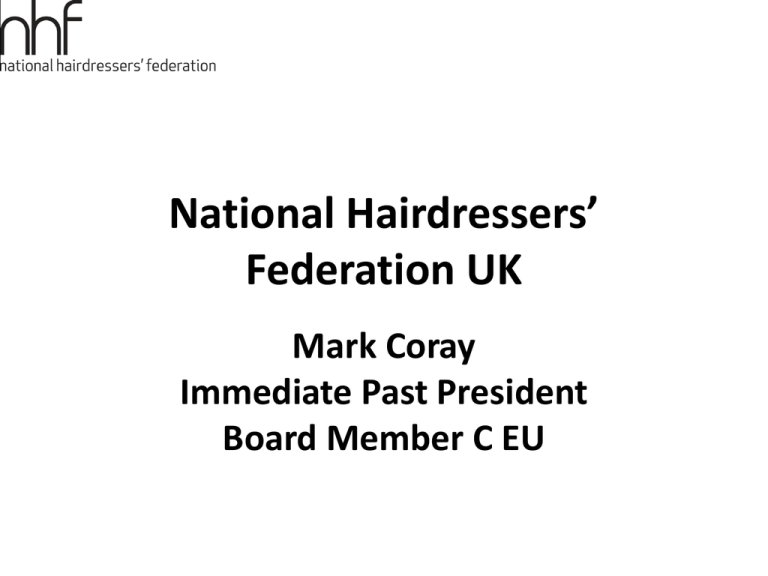
National Hairdressers’ Federation UK Mark Coray Immediate Past President Board Member C EU History of NHF • The National Hairdressers' Federation’s roots can trace to dates as early as 1831 as there was a benevolent organisation for hairdressers, which suggests that hairdressers had banded together to form some sort of association. • Formed in 1942 after a number of amalgamations of regional Federations, the last one came into the NHF in 1958 • The National Hairdressers' Federation today exists to represent hairdressing salon and beauty therapy business owners in Great Britain and self employed hairdressers and beauty therapists working in salons. • Membership is open to individuals, partners, directors and firms who meet the above criteria. Vision and mission • By 2017 NHF will have a growing membership and will be recognised as the UK’s leading authority on hairdressing, barbering and beauty salon ownership • Helping NHF members build successful and sustainable hairdressing, barbering and beauty salon businesses What we do • Employment Law support 24/7 Help line • Tax support Insurance against costly investigations • Publications Salon Focus, Business books, Business Contracts • Lobby Government Trying to change policy What we do • Britain’s Best competition • Regional competitions • Business events e.g. how to make your salon more profitable; managing yourself and your team; delivering a great client experience • Introduced an allergy alert consultation and test record card – helps stylists determine when and whether an allergy test is needed UK Market 200,000-300,000 employees in the Sector 25,000- 35,000 Businesses Sole traders Mobile Hairdressers Salons – singles and chains Largest chain – Regis with approx 400 salons UK Organisations • NHF – 5,000+ members (owning 8-10,000 salons) • Hairdressing Council - 7,000 registrants • The Fellowship of British Hairdressing • Federation of Freelance Hairdressers • British Barbers Association • Mens Hairdressing Federation Social dialogue • No social dialogue process in the UK • Hairdressers and barbers may be individual members of a trade union • Most salons will be too small to be unionised • Employers are working alongside employees so understand the working environment UK • Good record on health and safety in the UK • Existing legislation is adequate and supported by the Health and Safety Executive • Remuneration is governed by the statutory National Minimum Wage, and Minimum Training wage although employers can pay more if they wish • National occupational standards specify training included in Apprenticeship frameworks





